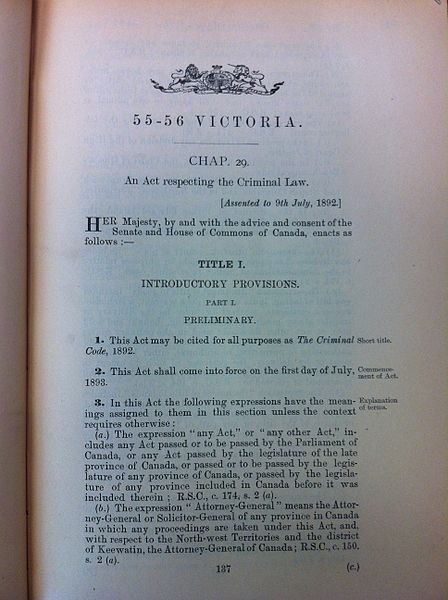The Criminal Code is a law that codifies most criminal offences and procedures in Canada. Its official long title is An Act respecting the Criminal Law, and it is sometimes abbreviated as Cr.C. in legal reports. Section 91(27) of the Constitution Act, 1867 establishes that the Parliament of Canada has sole jurisdiction over criminal law.
Criminal Code (Canada)
Picture of the first page of the Criminal Code, 1892
The Constitution Act, 1867, originally enacted as the British North America Act, 1867, is a major part of the Constitution of Canada. The act created a federal dominion and defines much of the operation of the Government of Canada, including its federal structure, the House of Commons, the Senate, the justice system, and the taxation system. In 1982, with the patriation of the Constitution, the British North America Acts which were originally enacted by the British Parliament, including this Act, were renamed. However, the acts are still known by their original names in records of the United Kingdom. Amendments were also made at this time: section 92A was added, giving provinces greater control over non-renewable natural resources.
Front page of a copy of the act from 1867



